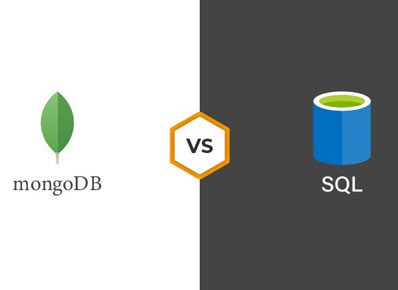Introduction
MongoDB and SQL are two opposite sides of the database world. MongoDB deals with chaotic unstructured data, while SQL deals with organized structured data, both having their own set of advantages and disadvantages and different types of use cases. In this topic, we will learn about the basic comparison between MongoDB vs SQL databases.
What is MongoDB?
MongoDB is a generic database built for the modern day developers and for the cloud era. It is a source-available, cross-platform and document-oriented database program. It belongs to the NoSQL databases category, which is used for storing unstructured documents in JSON format. It was first launched in 2009 and has since become one of the leading databases in NoSQL space.
What is SQL?
SQL is a domain specific database used for programming. It is designed for managing data stored in a Relational Database Management System (RDBMS). SQL stands for Structured Query Language. It is used to create/delete databases, to fetch and modify rows, and modifying rows, etc. It was first commercially launched in 1979 and has continued to leave its mark even now.
Real-World Use Cases:
MongoDB
1. Internet of Things – MongoDB is highly used to capture values from the IoT.
2. Content Management – Store and serve any type of content, build any feature, serve it any way you like, all from a single database.
3. Gaming – Data has always been an essential part of video games and MongoDB plays a significant role in it.
4. Payments – The payments industry is changing fast. It needs a database flexible enough to keep up, Hence MongoDB does the job.
SQL
1. Order Management – Any company that tracks customers and their orders has data which is linked to each other.
2. Health care provider – Health Care deals with multiple branches having hundreds of patients, each having their own related data.
3. Scientific data – SQL plays a vital role in the database for research.
4. Nonprofit organization – Any organisation that has simple and less data can be handled using SQL.
Advantages:
MongoDB
1. Faster and save times – Data access in MongoDB is slower compared to write. But it is faster than SQL and it saves time as it is schema-less.
2. Consistency over Availability – Maintains consistency in data.
3. Scalability – MongoDB is easy to scale.
4. High performance – Performance of MongoDB is much higher compared to any relational database.
5. Ideal for Querying – Simple to query without the schema.
SQL
1. Faster Query Processing – SQL helps in retrieving large amounts of data quickly and efficiently.
2. Interactive Language – SQL is easy to learn and understand
3. Portable – SQL can be used in programs in PCs, servers, laptops independent of any platform.
4. Standardized Language – SQL provides a uniform platform to worldwide users.
Disadvantages:
MongoDB
1. High Memory Usage – The data redundancy in MongoDB increases unnecessary usage of memory.
2. Limited Data Size – MongoDB can have document size, not more than 16 MB.
3. Limited Nesting – MongoDB does not allow nesting of documents for more than 100 levels.
4. Less flexibility – MongoDB is less flexible with querying.
SQL
1. Complex Interface – SQL has a complicated interface that makes users uncomfortable while dealing with the database.
2. Cost – Few versions of SQL are costly and programmers cannot access it.
3. Partial Control – Complete control/access is not given to the database, due to hidden business rules.
CONCLUSION
When indecisive whether to opt for MongoDB or SQL, companies need to consider their data volume and requirements. SQL is more suitable for smaller datasets, whereas MongoDB is capable of handling large datasets. SQL is known for its high performance, flexibility, high availability and management. MongoDB on the other hand, is a go-to solution as it is open, simple and collaborative.
In the event that your data is unstructured, complex, there is no predetermined schema and you need to handle large amounts of data and store it as documents, MongoDB can be preferred over SQL, else vice-versa.

